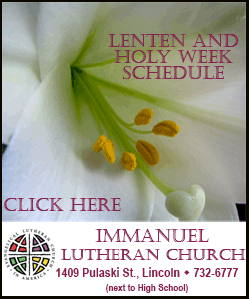|
 The world's worst Ebola epidemic has killed over 10,200 people in
the three most affected countries of Guinea, Liberia and Sierra
Leone since March 2014 when it was first confirmed in the forest
region of Guinea. The world's worst Ebola epidemic has killed over 10,200 people in
the three most affected countries of Guinea, Liberia and Sierra
Leone since March 2014 when it was first confirmed in the forest
region of Guinea.
Medecins Sans Frontieres (MSF), which first raised the alarm over
Ebola, said in a report that everyone from national governments to
the World Health Organization (WHO) had created bottlenecks that
prevented the epidemic being quickly snuffed out.
"The Ebola outbreak has often been described as a perfect storm: a
cross-border epidemic in countries with weak public health systems
that had never seen Ebola before," Christopher Stokes, MSF's general
director, said in the report.
"Yet this is too convenient an explanation. For the Ebola outbreak
to spiral this far out of control required many institutions to
fail. And they did, with tragic and avoidable consequences."

In a scathing report titled "Pushed to the limit and beyond", MSF
said its warnings in June that the epidemic was out of control and
that it could not respond on its own were dismissed as alarmist.
Guinea and Sierra Leone downplayed the epidemic and accused MSF of
spreading fear and panic. In June, the Sierra Leone government told
the WHO to report only lab-confirmed deaths -- falsely reducing the
death toll, the report said.
Kenema hospital in the southeast, where some of the first cases were
reported in Sierra Leone, also withheld crucial epidemiological data
preventing MSF from identifying affected villages and responding,
the report said.
"The Ministry of Health and the partners of Kenema hospital refused
to share data or lists of contacts with us, so we were working in
the dark while cases kept coming in," MSF's emergency coordinator in
Sierra Leone, Anja Wolz, said in the report.
Liberia was transparent and asked for help almost on a daily basis.
MSF, which reported this to the WHO in June, said the outbreak could
have been halted if immediate action was taken, but these warnings
were again ignored.
"INDESCRIBABLE HORROR"
When MSF first declared there was an unprecedented Ebola outbreak at
the end of March, the WHO rejected the assessment. It finally
declared a public health emergency on Aug. 8, prompting a belated
international response.
[to top of second column] |

MSF branded the response a "global coalition for inaction" and said
by the end of August, it had to turn away patients in Liberia
leaving many to die in their homes or on the streets.
"We had to make horrendous decisions about who we could let into the
center," said MSF coordinator Rosa Crestani, who worked at the
organization's Ebola center in Monrovia, which could only be opened
for 30 minutes a day because of the demand for beds.
"We could only offer very basic palliative care and there were so
many patients and so few staff that the staff had on average only
one minute per patient. It was an indescribable horror."
The number of Ebola cases dropped dramatically over the new year in
Sierra Leone, Liberia and Guinea. The presidents of all three
countries announced a target to reach zero Ebola by mid-April.
However, Guinea recently reported a doubling of cases in a month,
Sierra Leone has a whole neighborhood under quarantine and Liberia
announced on Friday its first new case 16 days after its last Ebola
patient was released.
The Ebola outbreak is not over until there are zero cases in the
region for 42 days.
(Reporting by Misha Hussain, Editing by Emma Batha)
[© 2015 Thomson Reuters. All rights
reserved.] Copyright 2015 Reuters. All rights reserved. This material may not be published,
broadcast, rewritten or redistributed.

 |